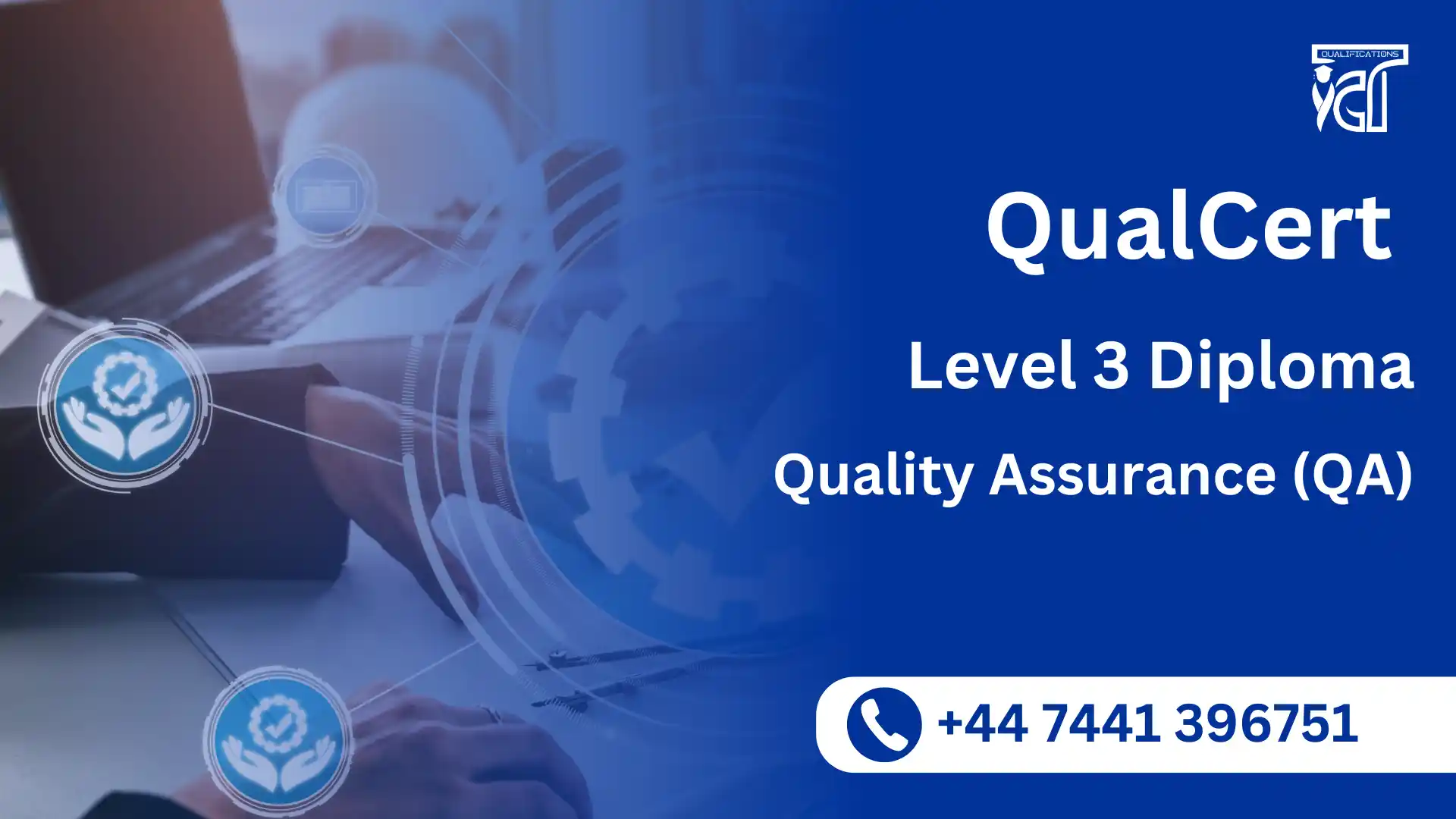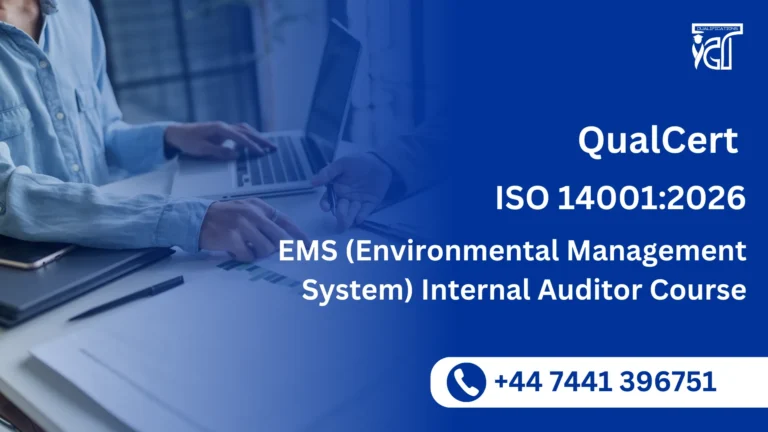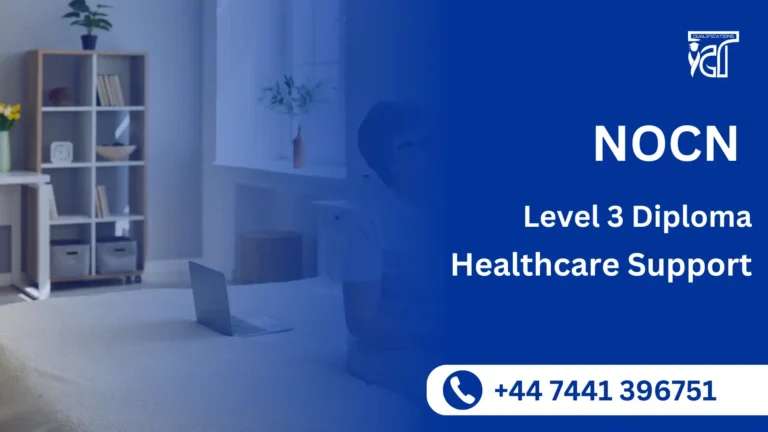The QualCert Level 3 Diploma in Quality Assurance (QA) is an entry-level qualification designed to provide learners with a comprehensive introduction to the principles, processes, and practical applications of quality assurance across various industries. This course serves as the ideal starting point for individuals looking to build a career in quality management, quality control, or compliance-related roles.
In today’s competitive and quality-driven environment, organizations are increasingly focused on meeting regulatory standards, customer expectations, and continuous improvement goals. This diploma equips learners with the essential skills needed to support these objectives, including basic auditing techniques, quality control tools, process monitoring, documentation, and reporting.
Whether you’re a school leaver, a technical worker, or someone transitioning into the QA field, this qualification offers a solid foundation in quality assurance. It introduces learners to international quality standards like ISO 9001, key documentation practices, and teamwork in QA settings—preparing them for entry-level roles or further study in the quality profession.
By completing the QualCert Level 3 Diploma in Quality Assurance, learners gain the knowledge and confidence to contribute effectively to quality-focused environments and pursue advancement in the growing field of quality management.
QualCert Level 3 Diploma in Quality Assurance (QA)
The QualCert Level 3 Diploma in Quality Assurance (QA) certification is designed to provide a structured and comprehensive framework for developing expertise in quality assurance. Below is the qualification structure, including the Total Qualification Time (TQT) 300, Guided Learning Hours (GLH) 210, and 60 Credits associated with the program.
| Unit Ref# | Unit Title | Credit | GLH | TQT |
| QC07010 – 1 | Introduction to QA and Compliance | 10 | 35 | 50 |
| QC07010 – 2 | Basic Quality Control Methods | 10 | 35 | 50 |
| QC07010 – 3 | Understanding QA Documentation | 10 | 35 | 50 |
| QC07010 – 4 | Introduction to Auditing in QA | 10 | 35 | 50 |
| QC07010 – 5 | Process Improvement Techniques | 10 | 35 | 50 |
| QC07010 – 6 | Communication in QA | 10 | 5 | 50 |
GLH (Guided Learning Hours) and TQT (Total Qualification Time) are terms commonly used in vocational qualifications to help define the amount of time a learner is expected to spend on their studies.
1. GLH (Guided Learning Hours)
GLH refers to the number of hours a learner spends being directly taught, supervised, or supported during their course. This includes the time spent in activities such as:
- Classroom instruction
- Practical workshops
- One-on-one tutoring or mentoring sessions
- Online learning sessions with tutor support
In other words, GLH represents the time that learners are actively engaged with their instructors or learning activities.
2. TQT (Total Qualification Time)
TQT represents the total amount of time a learner is expected to invest in completing a qualification, including:
- GLH (Guided Learning Hours): Time spent on direct learning, as explained above.
- Self-Directed Learning: This includes time spent on independent study, research, assignment completion, preparation for exams, and any other work the learner does outside of direct teaching hours.
TQT is a broader measure that includes all the time required to achieve the qualification. It helps learners and employers understand the overall commitment required for the qualification.
Key Differences Between GLH and TQT:
- GLH focuses on direct learning with guidance or supervision.
- TQT includes GLH as well as independent study time and other learning-related activities.
Example:
If a qualification has a TQT of 600 hours and a GLH of 250 hours, it means the learner should spend 250 hours in direct learning (classroom, online, or tutor-led sessions) and 350 hours on independent study or research.
Upon successful completion of this qualification, learners will gain foundational knowledge and practical skills to support quality assurance activities in a range of industry settings.
1. Introduction to Quality Assurance and Compliance
- Understand the core principles and objectives of quality assurance and regulatory compliance.
- Identify major quality standards and industry regulations applicable across sectors.
- Recognize the critical role of QA in ensuring consistent product and service quality.
2. Fundamentals of Quality Control Techniques
- Learn key quality control methods commonly used in both manufacturing and service environments.
- Apply basic statistical tools to monitor, evaluate, and maintain quality performance.
- Detect typical quality-related problems and apply corrective measures effectively.
3. Quality Assurance Documentation Practices
- Appreciate the importance of structured and accurate documentation in QA systems.
- Acquire skills in preparing and maintaining quality-related records, forms, and reports.
- Understand how proper documentation supports compliance with industry standards and audits.
4. Introduction to Quality Auditing
- Gain insight into the purpose and types of quality audits, including internal and external audits.
- Understand the key stages of an audit—from planning and execution to reporting and follow-up.
- Learn to identify non-conformities and support the development of corrective action plans.
5. Process Improvement Foundations
- Explore introductory concepts of process improvement frameworks such as Lean, Six Sigma, and Kaizen.
- Learn how to identify inefficiencies in work processes and suggest practical improvements.
- Monitor and measure the impact of improvement initiatives using basic performance indicators.
6. Communication in Quality Assurance
- Develop effective communication skills for sharing quality-related findings and updates.
- Understand the role of clear documentation in supporting QA activities and decision-making.
- Collaborate with teams to promote a quality-focused culture within the organization.
The QualCert Level 3 Diploma in Quality Assurance (QA) offers essential benefits for individuals looking to start or strengthen a career in the quality assurance field. This entry-level qualification provides a practical foundation that supports both immediate employment and long-term career progression in a variety of industries.
1. Strong Entry into the QA Field
Gain a recognized qualification that prepares you for entry-level roles such as QA Assistant, Quality Inspector, or Compliance Support Officer in manufacturing, engineering, logistics, healthcare, and more.
2. Hands-On, Industry-Relevant Skills
Develop practical skills in quality control, basic auditing, documentation, compliance, and process improvement—tools that are directly applicable to real-world QA environments.
3. Foundation for Career Progression
Use this qualification as a stepping stone to more advanced studies such as the Level 4 or Level 5 Diploma in Quality Assurance, ISO 9001 Internal Auditor certification, or Six Sigma training.
4. Multi-Sector Flexibility
The knowledge and techniques learned are transferable across industries, offering broad career opportunities in both the public and private sectors.
5. Improved Workplace Contribution
Learn how to support quality systems, identify process inefficiencies, assist in audits, and maintain compliance—helping you add immediate value to your organization.
6. Increased Employability
Stand out in a competitive job market with a formal qualification that demonstrates your commitment to quality principles and professional development.
7. Supports Quality Culture in the Workplace
Equip yourself with the skills to promote a culture of consistency, accountability, and continuous improvement within your team or department.
8. Accessible and Practical Learning Pathway
Designed to be clear, practical, and easy to follow for beginners, the course is ideal for individuals with little to no prior QA experience.
This diploma is perfect for anyone looking to build a solid foundation in quality assurance and start a rewarding career in a quality-focused profession.
The QualCert Level 3 Diploma in Quality Assurance (QA) is designed for individuals at the beginning of their journey in the quality field. It provides a clear, accessible pathway for those looking to gain foundational skills in quality assurance and build a career in this essential discipline. The ideal learner for this course includes:
1. Entry-Level Job Seekers
Individuals with little or no prior experience in quality assurance who want to gain a recognized qualification to begin a career in QA or QC roles.
2. Recent School or College Graduates
Students who have completed their secondary education or a technical/vocational program and are looking to enter the workforce with a job-ready credential.
3. Production or Operations Staff
Technicians, operators, or support staff in manufacturing or service industries who want to formalize their knowledge and take on more responsibility in quality-focused tasks.
4. Career Switchers
Professionals from other fields who wish to transition into the quality assurance sector and need a solid entry point to understand the fundamentals.
5. Support Staff in QA Departments
Administrative or junior team members working within quality departments who want to improve their technical knowledge and effectiveness in QA functions.
6. Apprentices and Interns
Those involved in training programs or internships related to production, operations, or compliance who want to supplement their hands-on experience with formal education.
7. Small Business Staff
Employees in small companies or family-run businesses who contribute to product or service delivery and need to understand basic quality practices for consistency and improvement.
This course is ideal for motivated, detail-oriented individuals who are eager to understand the core principles of quality assurance and contribute to quality excellence within any organization.
Entry Requirements
Register Now
Qualification Process
Qualification Process for the QualCert Level 3 Diploma in Quality Assurance (QA)
- Self-Assessment:
Begin by evaluating your eligibility to ensure you meet the qualification requirements, including work experience, knowledge, and language proficiency. - Registration:
Complete your registration by submitting the required documents, including a scanned copy of a valid ID, and paying the registration fee. - Induction:
An assessor will conduct an induction to confirm your eligibility for the course and explain the evidence requirements. If you do not meet the criteria, your registration will be canceled, and the fee will be refunded. - Assignmnets & Evidence Submission:
Provide all assignmnets and the necessary evidence based on the assessment criteria outlined in the course. If you are unsure of the required evidence, consult with the assessor for guidance on the type and nature of evidence needed. - Feedback and Revision:
The assessor will review your submitted evidence and provide feedback. Evidence that meets the criteria will be marked as “Criteria Met,” while any gaps will be identified. You will be asked to revise and resubmit if needed. - Competence Evidence:
Submit final evidence demonstrating that all learning outcomes have been met. This evidence will be marked as “Criteria Met” by the assessor once it is satisfactory. - Internal Quality Assurance (IQA):
The Internal Quality Assurance Verifier (IQA) will review your evidence to ensure consistency, quality, and compliance with standards. - External Verification:
The IQA will submit your portfolio to QualCert External Quality Assurance Verifiers (EQA) for final confirmation. The EQA may contact you directly to verify the authenticity of your evidence. - Certification:
Upon successful completion of all checks, QualCert will issue your official certificate, confirming that you have attained the QualCert Level 3 Diploma in Quality Assurance (QA).







